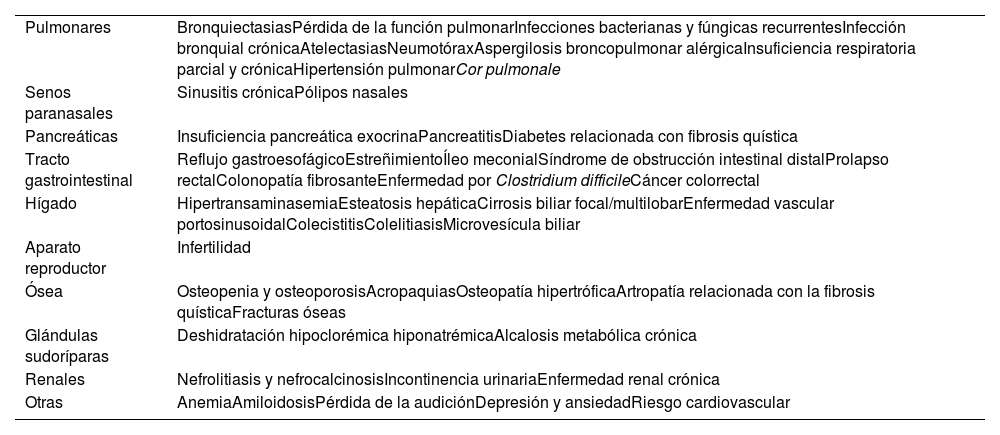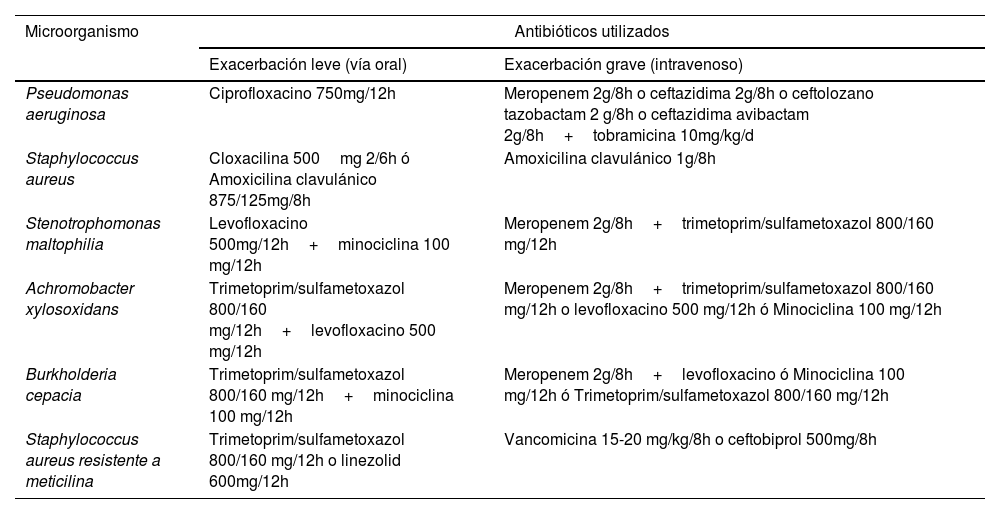La fibrosis quística es una enfermedad genética y multisistémica. La principal comorbilidad en la edad adulta es la afectación respiratoria, con la presencia de bronquiectasias, infección bronquial crónica y obstrucción al flujo aéreo. Hasta hace una década los tratamientos estaban dirigidos a favorecer el drenaje de secreciones, reducir las exacerbaciones respiratorias, controlar la infección bronquial crónica y enlentecer el deterioro funcional, pero con la llegada de los moduladores del gen cystic fibrosis transmembrane conductance regulator (CFTR) el paradigma de la fibrosis quística se ha modificado. Este novedoso tratamiento da un paso más frente al tratamiento de esta enfermedad, es capaz de mejorar la producción de proteína CFTR defectuosa y aumentar su expresión en la superficie celular, para así conseguir un mejor funcionamiento del intercambio iónico fluidificando las secreciones respiratorias y reduciendo la obstrucción al flujo aéreo.
Además, en la actualidad hay diferentes líneas de investigación orientadas a corregir el defecto genético causante de la fibrosis quística.
Cystic fibrosis is a genetic and multisystemic disease. The main comorbidity in adulthood is respiratory involvement, with the presence of bronchiectasis, chronic bronchial infection and airflow obstruction. Until a decade ago, treatments were aimed at favoring secretion drainage, reducing respiratory exacerbations, controlling chronic bronchial infection and slowing functional deterioration, but with the advent of cystic fibrosis transmembrane conductance regulator (CFTR) modulators, the cystic fibrosis paradigm has changed. This novel treatment goes a step further in the management of this disease, it is able to improve the production of defective CFTR protein and increase its expression on the cell surface, thus achieving a better functioning of ion exchange, fluidizing respiratory secretions and reducing airflow obstruction.
In addition, there are currently different lines of research aimed at correcting the genetic defect that causes cystic fibrosis.












